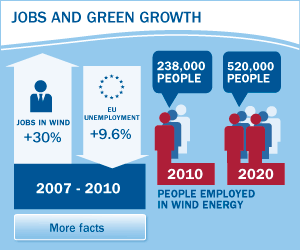 The B-20 Summit of global business leaders took place earlier this week in Mexico. In this blog post, cross-posted from the World Economic Forum’s blog, Ditlev Engel, CEO of Vestas Wind Systems, and Simon Upton, Director Environment at the OECD, argue the case for an end to fossil fuel subsidies…
The B-20 Summit of global business leaders took place earlier this week in Mexico. In this blog post, cross-posted from the World Economic Forum’s blog, Ditlev Engel, CEO of Vestas Wind Systems, and Simon Upton, Director Environment at the OECD, argue the case for an end to fossil fuel subsidies…
If we are serious about reducing the use of fossil fuels, why would we make them artificially cheaper? But, that is what we are doing through inefficient fossil fuel subsidies. Many industrialized countries, for example, still support their coal mining industries to the tune of several billion euros a year while developing countries often spend considerable resources to keep domestic fuel prices below world prices. Eliminating such measures and inefficient fossil fuel subsidies more generally would help reduce fiscal imbalances, increase real incomes, and reduce greenhouse gas emissions and the overall cost of climate change mitigation. It would thus eliminate a key barrier to the faster deployment of clean energy. A portion of the funds saved from ending such subsidies could also be redirected to support access to energy by all and other policy priorities.
 Japan, the world’s third largest economy, has firmly shifted its future energy profile towards renewable energy technologies with a decision Monday to implement a feed-in-tariff for wind power and other renewables.
Japan, the world’s third largest economy, has firmly shifted its future energy profile towards renewable energy technologies with a decision Monday to implement a feed-in-tariff for wind power and other renewables.
Reuters reported that the new incentives for renewable energies could unleash billions of Euros in revenue from renewable generation and related equipement while helping the nation move away from its reliance on nuclear power following last year’s earthquake and tsunami which resulted in the Fukushima reactor disaster.
 UK newspapers have again picked-up on the issue of government subsidies to wind power saying that one Cabinet Office minister – Oliver Letwin – backs an end to subsidies to onshore wind farms by 2020. But the Guardian reported that Mr. Letwin’s comments have “irritated” Ed Davey, the UK climate change secretary, who last week set out his backing for wind energy.
UK newspapers have again picked-up on the issue of government subsidies to wind power saying that one Cabinet Office minister – Oliver Letwin – backs an end to subsidies to onshore wind farms by 2020. But the Guardian reported that Mr. Letwin’s comments have “irritated” Ed Davey, the UK climate change secretary, who last week set out his backing for wind energy.
It makes me wonder – how do politicians and media can get away with talking about removing subisidies from renewables without even mentioning the existence – let alone withdrawal – of much larger subsidies for much more established energy technologies? It is hard to understand.
 “At a time of austerity, Greek citizens cannot afford to support practices which prolong energy dependence. The choice of importing oil and gas versus producing renewable energy within the EU, and encouraging clean energy exports among Member States, is obvious”, Greek Energy Minister George Papakonstantinou told Wind Directions magazine recently.
“At a time of austerity, Greek citizens cannot afford to support practices which prolong energy dependence. The choice of importing oil and gas versus producing renewable energy within the EU, and encouraging clean energy exports among Member States, is obvious”, Greek Energy Minister George Papakonstantinou told Wind Directions magazine recently.
He also rebutted the myth that renewables are expensive, saying it was a view he didn’t share, “especially in regard to proven and tested technologies such as wind and solar PV, whose investment costs have been lowered significantly in the last few years.
 By Sarah Vaughan, New Zealand Wind Energy Association
By Sarah Vaughan, New Zealand Wind Energy Association
New Zealand last week geared up for Global Wind Day, with the NZ Wind Energy Association and its members focusing on the benefits of wind energy and enabling people to experience wind energy.
We kicked off proceedings with an industry and stakeholder networking event in the Capital on Wednesday, June 13. At the event NZWEA released a report that examines the economic benefits of wind farms in NZ, in particular current and future employment opportunities. We think many people were pleasantly surprised by some of the conclusions the report reaches.
 The B-20 Summit of global business leaders took place earlier this week in Mexico. In this blog post, cross-posted from the World Economic Forum’s blog, Ditlev Engel, CEO of Vestas Wind Systems, and Simon Upton, Director Environment at the OECD, argue the case for an end to fossil fuel subsidies…
The B-20 Summit of global business leaders took place earlier this week in Mexico. In this blog post, cross-posted from the World Economic Forum’s blog, Ditlev Engel, CEO of Vestas Wind Systems, and Simon Upton, Director Environment at the OECD, argue the case for an end to fossil fuel subsidies…






 Comments
Comments



